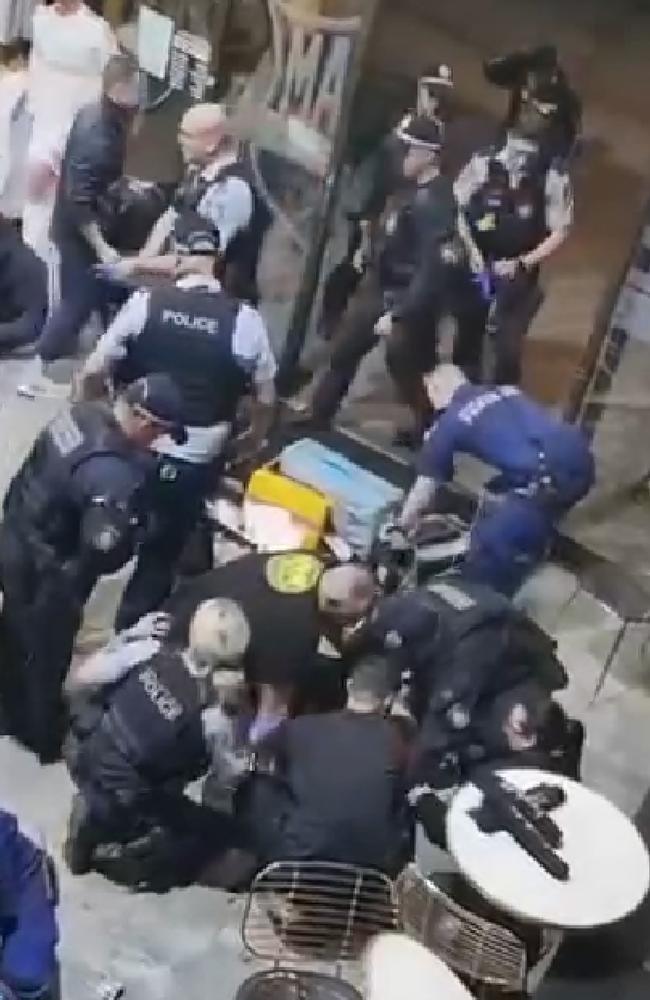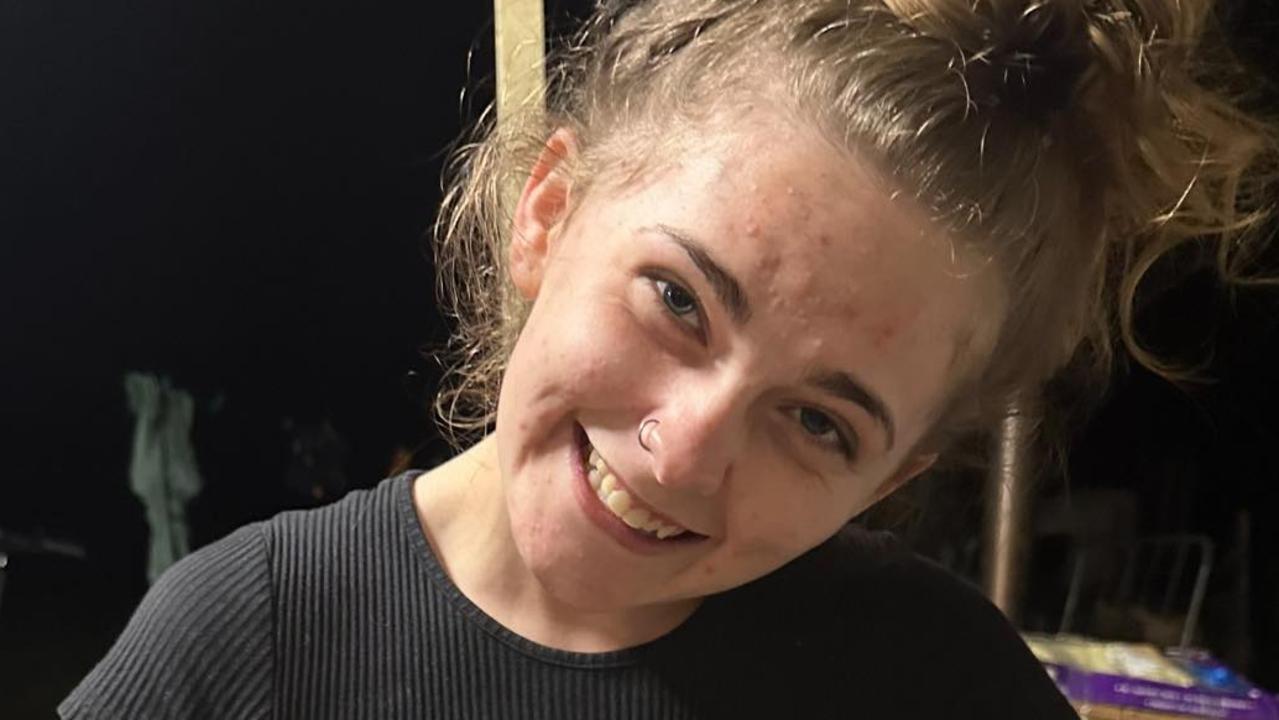Police fear escalating battle between Middle Eastern crime groups
A Comanchero bikie is in Brisbane hospital after being shot in the face in what police say is an escalating battle for control between two Middle Eastern crime groups.
Police & Courts
Don't miss out on the headlines from Police & Courts. Followed categories will be added to My News.
A Comanchero photographed partying with the club’s most notorious heavy hitters is in a Brisbane hospital after being shot in the face in what police believe are escalating tensions between two Middle Eastern crime groups.
It is understood 25-year-old Kyle Leofa was dropped at the emergency department of the Mater Hospital, hours after another man linked to the Comancheros was stabbed to death in a Brisbane street.
There is no suggestion that the shooting of Mr Leofa is linked in any way to that murder.
Police have spoken previously about escalating tensions between members of Middle Eastern organised crime groups, believed to be responsible for a series of drive-by shootings around Brisbane.

Mr Leofa is not co-operating with investigators and is in a stable condition.
Police on Thursday released an appeal for information on the alleged shooting, which they believe occurred in a carpark in Underwood about 7pm Monday.
They said their investigations had revealed a group of men were filming a video in the carpark of a shopping strip when two vehicles, one containing Mr Leofa, approached.
Police said “an alleged incident” has then occurred, resulting in Mr Leofa suffering a significant wound to his face and throat.
“The QPS established Operation Dagobah, made up of members from the Crime and Intelligence Commands’ Organised Crime Squad and Gangs Group, and Brisbane and South Eastern regions … to spearhead investigations into incidents between two rival groups,” a police statement said.
Operation Dagobah has investigated seven drive-by shootings and shootings and has previously arrested nine men. The statement said police were yet to speak with Mr Leofa.
Mr Leofa was pictured rubbing shoulders with the national president of the Comancheros, Allan Meehan, and Comancheros sergeant-at-arms Tarek Zahed just last month.
The photograph shows the trio, plus Comancheros associate Mohamad “Almo” Alameddine, posing for the camera behind a table full of drinks and throwing up hand signs at a catch-up in Melbourne.
It was the first public glimpse of Zahed since he was last seen lying in a pool of blood on the floor of a Sydney gym in May after being shot 10 times when a gang war escalated.
Zahed miraculously survived the attempted assassination, but his brother Omar was killed. Zahed was left blind in one eye and with serious damage to other parts of his body.
Another photo from the night shows Mr Leofa with his arm around a different man and the two highest-ranking Comancheros in Australia hugging beside them.
The photos were posted to Instagram by Meehan, who captioned the photo “welcome back Tarek ‘hard2kill’ Zahed”.

The recent incidents have sparked frustrations among police, who find Queensland’s consorting laws “cumbersome” and difficult to prosecute.
The Palaszczuk government passed the consorting laws in 2017 to replace the former Newman government’s controversial VLAD laws, which were brought in after a notorious bikie brawl at the Gold Coast in 2013.
But The Courier-Mail understands only specialised detectives have the time and skill to attempt prosecuting someone for consorting, and preparing the brief of evidence is messy and often not worth the minor penalty.
Opposition MP and former detective Dan Purdie said the legislation was a “toothless tiger”.
“Police know the laws aren’t worth the paper they’re written on. They are impossible to prove, and the time taken to administer them isn’t worth the effort,” Mr Purdie said.
“Consequently police are struggling to keep a lid on the escalating bikie war, which has led to drive-by shootings and now a public slaying, and unfortunately here in Queensland we’ve seen innocent victims get caught in the crossfire.”
Criminal lawyer Bill Potts said the legislation simply didn’t work.
“Historically, consorting laws have never worked, and lead to corruption,” Mr Potts said. “It takes up a considerable amount of manpower.”
Attorney-General Shannon Fentiman recently announced the effectiveness of changes to consorting laws would be reviewed this year in line with expectations.



